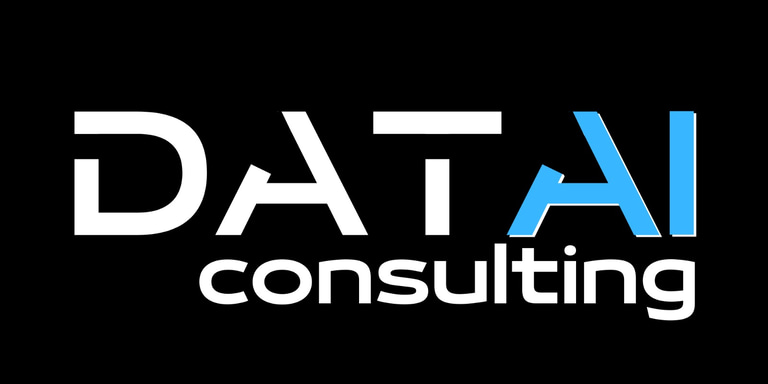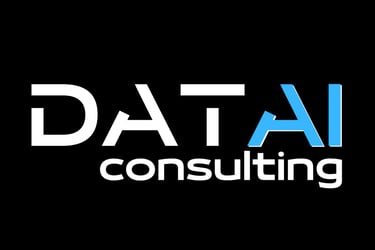Assessing your company's "data maturity": unlocking optimization and performance!
In a ever-evolving world where change is accelerating, leveraging data and artificial intelligence to make informed decisions in the short and long term has become vital to maintain competitiveness as a company. Assessing the data maturity level within your organization is crucial for making informed decisions and achieving optimized results. This article explores the significance of evaluating data maturity, its benefits, and how to conduct a successful assessment of it.
Sophie Stern
8/24/20233 min read


Assessing your company's data maturity: unlocking optimization and performance!
In an ever-evolving world where change is accelerating, leveraging data and artificial intelligence (AI) to make informed decisions in the short and long term has become vital to maintain competitiveness as a company.
Assessing the data maturity within your organization is crucial for making informed decisions and achieving optimized results.
This article explores the significance of evaluating data maturity, its benefits, and how to conduct a successful assessment of it.
You have already crafted a robust Data & AI strategy, conducted team familiarization sessions on these topics, implemented data governance, fostered creativity in use cases, and even intiated their prototyping or operationalization.
But do you truly know where your company stands in its Data & AI transformation journey❓ Can you determine the pace of your company's transformation❓ And more importantly, do you know how much time and energy will be required by the company to become fully data/AI-driven according to your objectives❓
After an introduction to what data maturity entails, we will explore why and how to conduct a successful assessment.
Why should you Evaluate your Company's Data Maturity?
The concept of data maturity in a company pertains to its degree of strategy definition, cultural assimilation, adoption of policies, technologies, and best practices.
The evolution of the data maturity level signifies the transition within a company from basic information management to advanced data-driven decision-making.
Today, data maturity models consist of five levels. A data maturity level equal to 5 signifies a data-driven company.
Evaluating data maturity within the organization allows you to pinpoint strengths, weaknesses, and improvement opportunities, and most importantly, plan for them over time using SMART objectives (SMART = Specific, Measurable, Achievable, Relevant, Time bound)?
What are the Key Advantages of High Data Maturity?
Among the advantages of a data maturity at level 5 are:
👉 Informed Decision-making
A high level of data maturity provides the company with reliable information, facilitating strategic decision-making processes.
👉Enhanced Operational Efficiency
Your company can optimize its processes by using its data to identify issues and take necessary actions. Efficiency applies to all areas, from maintenance to sales, and even supplier procurement. Feel free to get creative! You'll find some tips in the article: https://www.dataiconsulting.com/en/data-and-ai-use-cases-how-to-be-creative
👉Fostered Innovation
A high level of data maturity promotes an environment conducive to innovation and experimentation.
How to Conduct a Data Maturity Assessment?
📌 Defining the Assessment Objectives and Selecting an Assessment Framework
It is important to identify the most relevant data maturity items for your organization's goals.
You can use a pre-established framework, but at DATAI consulting, we prefer to create one that is truly tailored to your company's needs.
📌Gathering Data Program Information and Evaluate and Analyse
To analyze and evaluate the level of maturity, you must first gather all available information about your data program in the various relevant sectors.
Then, assess the gathered data and assign scores for each item. Analyzing the results helps identify gaps. It is often preferable for this evaluation and analysis to be conducted by an external company.
📌Defining the Action Plan, Roadmap, and Implement the Defined Actions
Based on the identified gaps, it is esential to create the improvment roadmap 🎯 for the organization's data maturity.
The most crucial step is yet to be done: promptly implementing the defined actions plan.
Tips
🔎 The data maturity assessment should be repeated at regular intervals to ensure the organization is progressing in the desired direction.
🔎 Like any evaluation, this one should retain its meaningfulness. Assessing criteria on improvement axes should not be reduced to mechanical data aggregation. Verbatim comments often provide valuable insights that should be thoroughly examined.
The author
In my role as CEO and Data & AI Consultant at my firm, DATAI Consulting, I leverage my expertise gained from 20 years of experience in data, AI, and digital transformation to assist SMEs and large corporations in shaping their Data & AI strategies and enhancing their performance.




